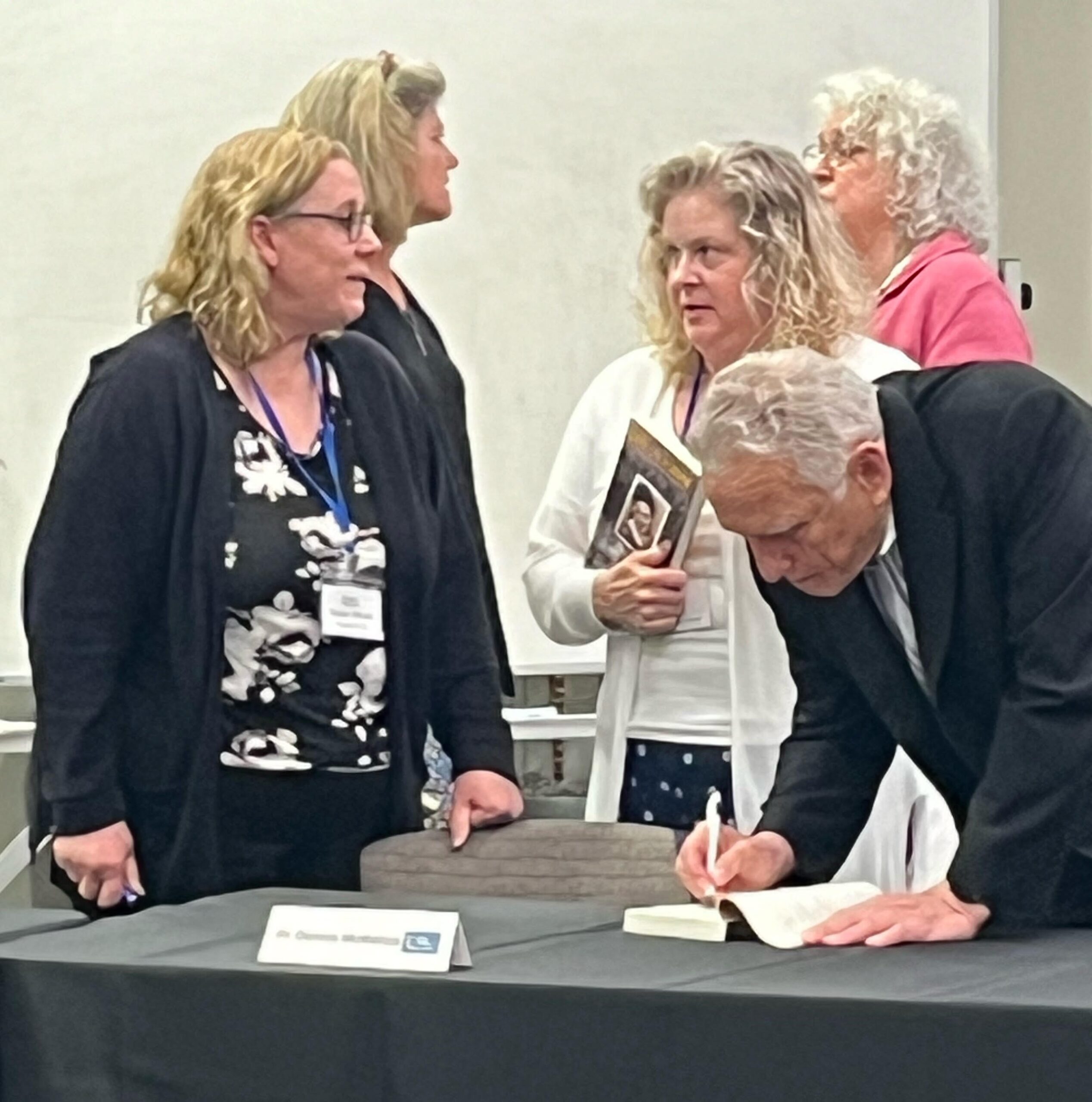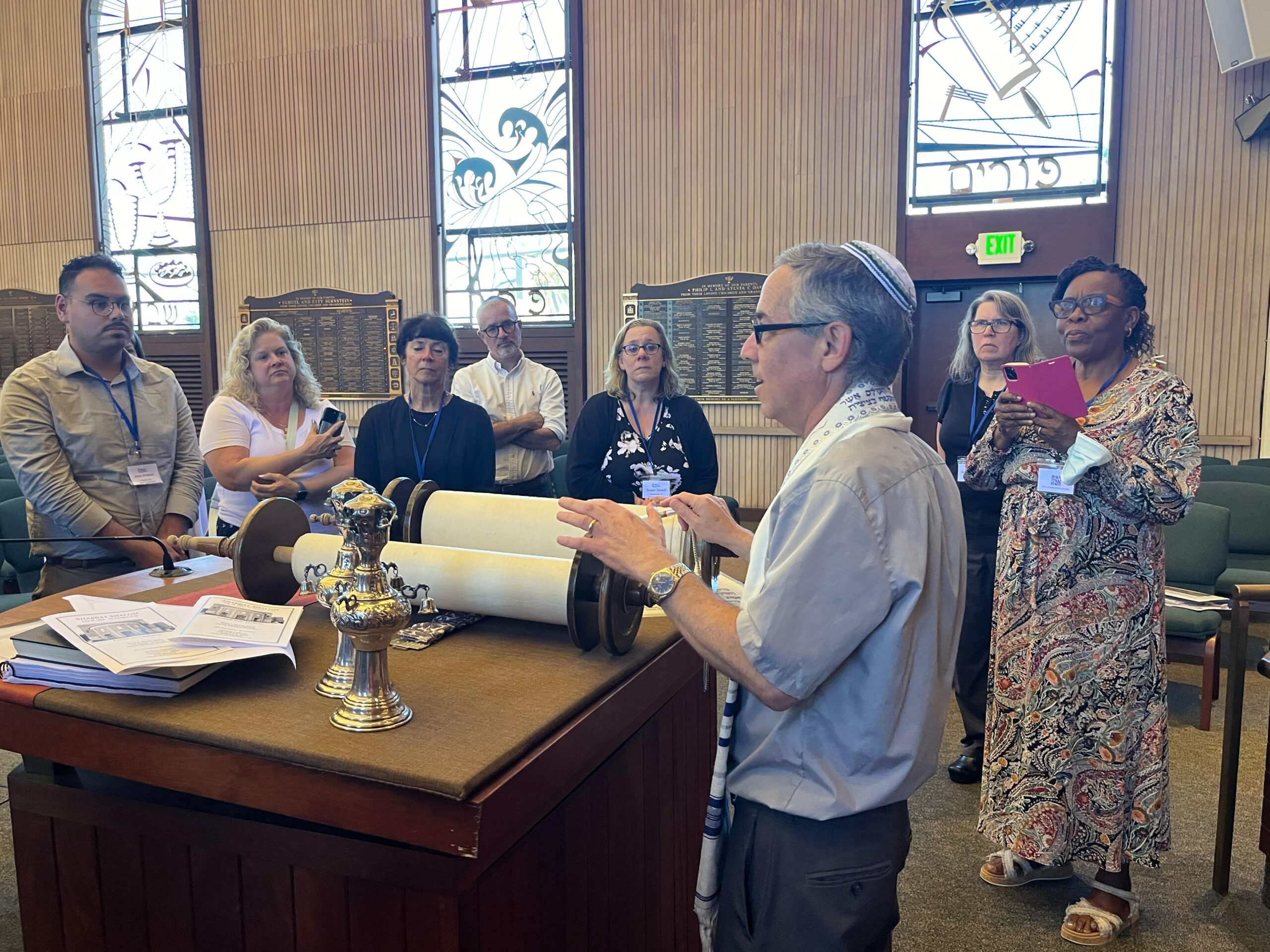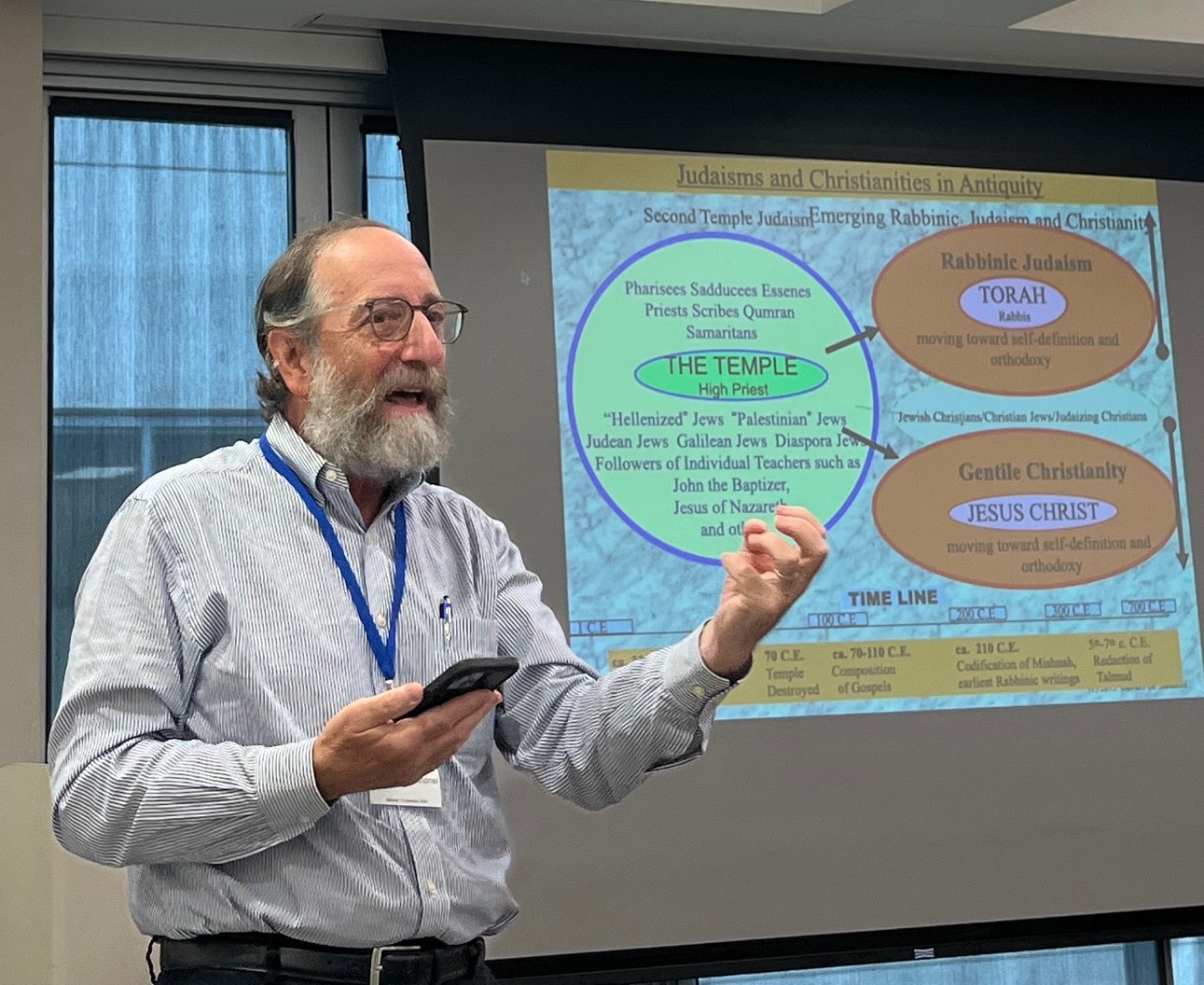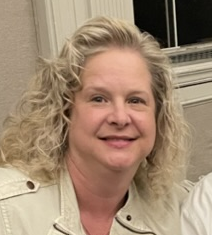When Hallie Leach was growing up, she did not receive an education about the Holocaust. In college, she took a class on Judeo-Christian Religious Traditions, which addressed the subject. “We read Night and I could not believe that I had not learned about it before,” Hallie says. “The class and that teacher started me on my journey.”
Hallie now has a certificate in Holocaust and Genocide Studies from Seton Hill University, and plans to attend Gratz College for a doctorate in the future. She learned about TOLI’s professional development seminar, “We Remember: Exploring the Holocaust and Antisemitism,” at the National Catholic Educational Association Conference in Pittsburgh. ”Even though I have attended a number of teacher trainings over the years, the TOLI seminar that was being offered in Oakland, California, stood out to me because it was specifically for Catholic school teachers,” Hallie says. “I believe teaching about the Holocaust is imperative, but to incorporate my faith and the role of Catholicism is also very important to me.”

Hallie (third from left) waiting for Moses Libitzky to sign his mother’s memoir.
Hallie’s participation in this seminar was made possible by a generous grant from the Libitzky Foundation, which underwrote the transportation and housing for a number of teachers across the country. Moses Libitzky attended the seminar to speak about his parents’ experience in the Holocaust, and presented each teacher with a copy of his mother Eva’s memoir, “Out on a Ledge: Enduring the Lodz Ghetto, Auschwitz, and Beyond.”
Hallie has now been teaching English and Literature in Catholic schools for 22 years, with units on the Holocaust. One of her notable challenges in the classroom is combating Holocaust denial and distortion that students are exposed to via social media.
Hallie recognized an even more urgent need for Holocaust education in her Catholic school classrooms after the Tree of Life synagogue shooting occurred, not far from St. Therese, her school in Pittsburgh.

Hallie Leach with Holocaust survivor Oscar Singer at the Holocaust Center of Pittsburgh.
Currently, Hallie’s Holocaust education units for grades seven and eight span for six to eight weeks. To supplement classroom lessons and activities, she brings Holocaust survivors and their children to speak to students, and takes her classes on field experiences, such as to a performance of Violins of Hope, a concert performed with a collection of instruments that belonged to Jews during World War II.
The TOLI seminar guided Hallie on how to best navigate and use the numerous resources available to educators.*
*TOLI’s recommended resources for educators are listed at https://www.toli.us/classroom-resources/.
Hallie also works with other teachers to help them incorporate the Holocaust into their own classrooms.
Hallie recalls a “fantastic” experience at the TOLI seminar, citing reading and interpreting Christian scripture with Father Dennis McManus and Rabbi David Fox Sandmel as a highlight. She gained new knowledge from the visit to Temple Beth Abraham in Oakland, where Rabbi Mark Bloom answered the teachers’ questions about Jewish faith and rituals, and welcomed them to Shabbat service and dinner. The Shabbat programming was attended by a number of Holocaust survivors and their children, who were very moved by the Catholic school teachers’ commitment to Holocaust education.

Hallie (second from left) and seminar participants with Rabbi Mark Bloom.
The seminar was led by TOLI Teacher Leaders Corey Harbaugh (Michigan) and Donna Tarney (North Carolina), along with Brendan Murphy, Director of the Bearing Witness Institute at Marist High School (Atlanta, Georgia).
While Hallie has attended many professional development programs for Holocaust education prior to attending TOLI’s, she, like most teachers who participate in our seminars throughout the US, noted TOLI’s unique pedagogy that incorporates reflective writing. “I really enjoyed writing about my day, as it helped me to process what I was learning,” Hallie says. “Writing is a unique attribute of TOLI. I think I will use writing more in my Holocaust unit this year to help my students to process the heavy subject they will be learning about. For many of my middle school students, this is the most intense and challenging unit they will encounter during their school year. Providing a way to help students process the material is essential.”

Rabbi Sandmel shares “An Introduction to the Jewish People” for Catholic school teachers.
Hallie is excited to continue her journey as a TOLI Teacher Leader, and plans to attend one of our Leadership Institute conferences in the future. She is also interested in becoming a seminar leader, and continuing her collaborations with her new TOLI Teacher network.
What’s her advice for Catholic school teachers considering attending a TOLI seminar for the first time? “Go!” Hallie encourages. “The seminar was full of great information and ideas, but working through the Catholic lens and writing to process the information made this seminar one of the best.”
At the end of the Oakland seminar, Hallie wrote a moving poem as her final reflection:
My Promise
By Hallie Leach
Their names are listed on the wall or on stones in the ground, on memorials or written in books. In the silence, you can hear their screams for justice, for peace. Their stories are seared into my memory and inscribed upon my heart.
I cannot promise them the justice they deserve, but I can and will bear witness, and I will charge those I share their stories with to do the same. I will build a community of memory.
I will share their truth – not just of their time imprisoned in ghettos, in hiding, in camps or as displaced persons, but of their lives, – their worlds before the world turned against them; I will share their hopes, their dreams, their stolen futures, their legacies. I will contextualize my teaching and help break down the mystery of the other.
I will share the truth of those who chose to collaborate and perpetrate the unthinkable – turning on their neighbors and their community, stealing happiness, dignity, families and futures.
I will share the sad truth of the bystanders, the stories of those people who, when the summer snow fell upon their heads, allowed it to seal their eyes, their ears and their mouths against injustice and did nothing.
I will share the truth of the righteous, those who often sacrificed their own freedom to help their fellow man – to feed, to clothe, to care for those who needed it most and who answered the call to help, despite the consequence of possible death, all because it was the right thing to do.
I will share the truth of the upstanders who spoke against hate, whether with weapons or armored with words to open the eyes of a blind world at their own risk.
My journey may have started by happenstance, but it has been a gift, and I accept the onus. I strive to continue learning, to consistently delve into the research, into the stories of the people, to give names to numbers, to demonstrate the power of words, to open eyes, to remember. I will look to the survivors.
I will speak the truth.
I will not forget.
I will bear witness.
Thank you for teaching us how to remember.

